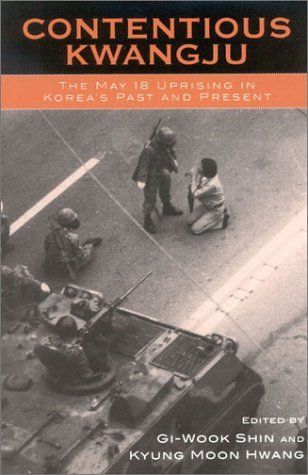
Contentious Kwangju The May 18 Uprising in Korea's Past and Present
One of the largest political protests in contemporary Korean history, the May 1980 Kwangju Uprising still exerts a profound, often contested, influence in Korean society. Through a deft combination of personal reflections and academic analysis, Contentious Kwangju offers a comprehensive examination of the multiple, shifting meanings of this seminal event and explains how the memory of Kwangju has affected Korean life from politics to culture. The first half of the book offers highly personal perspectives on the details of the uprising itself, including the Citizens' Army, the fleeting days of Kwangju citizen autonomy, the activities of American missionaries, and the aftermath following the uprising's suppression by government forces. The second half provides a wide-ranging scholarly assessment of the impact of Kwangju in South Korea, from democratization and the fate of survivors to regional identity and popular culture, concluding with an examination of Kwangju's significance in the larger flow of modern Korean history. In keeping with the book's title, the essays offer competing interpretations of the Kwangju Uprising, yet together provide the most thorough English-language treatment to date of the multifaceted, sweeping significance of this pivotal event.